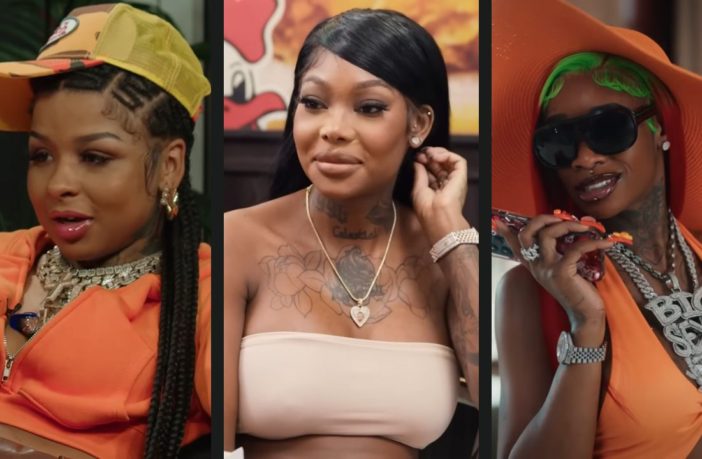Drama and feuds are a recurring theme in the music industry, particularly among female artists. From public callouts on social media, involving Sexyy Red and Khia, to Summer Walker mocking and insulting Chrisean Rock, the lack of unity among women in music is a subject that continues to be scrutinized.
129 Views
Recently, R&B singer Summer Walker ignited a wave of discussion on social media with a TikTok video that portrayed Chrisean Rock, another artist, in a mocking manner.
In the TikTok video, the “Girls Need Love Too” singer imitated Chrisean Rock’s viral video, mocking her distinctive tooth gap and referencing her previous argument with her ex and son’s father, Blueface. The incident sparked outrage among fans, where one fan wrote:
“Summer Walker was corny for that TikTok. She has songs about how black women are mistreated compared to other races, ethnicities etc. She’s a single mom of THREE, went through her downfall just to turn around and make fun of Chrisean. Wasn’t her lane, very distasteful.”
Rock took offense to Summer’s video, leading to a public exchange on Instagram Live. Rock expressed:
“You were very insensitive. This industry is cold as f*ck. You were in my DM’s asking me if I needed help and support then mocked me on TikTok.
While Summer took to her Instagram story writing:
“Sensitive about a tiktok that was viral way before I did it but you aint have no sympathy when you be dragging bitches across the ground and dumbing hoes in sinks just for looking at you funny. Let’s please tighten up it was never that serious.”
Meanwhile, a separate dispute unfolded among Sukihana, Sexyy Red, and Khia after fans compared the “My Neck, My Back,” rapper to both Sexyy Red and Sukihana, where Khia stated:
“Don’t compare me to these h*es.” In response to this, Sexyy Red tweeted , “Just another ol washed up h@g hating ona yung turnt rich bthc,” Then, Sexyy Red wrote under Khia’s video. “Hatin on btches den & you still ah mad hater.”
Sukihana took to Twitter (X), saying:
“I will knock khia tf out.” “SUKIHANA is SUKIHANA a has been is a has been. I’m booked every weekend until next September of NEXT YEAR. I get it I’m ratchet but I live in my truth. Atlease I don’t sit in front of a library mad at trina every day with 172 teeth in my mouth.”
Khia called out the St. Louis native, on her show Gag Order, referring to her as a “deadbeat baby mama” and a “young-thugga a** b*tch.” After the “SkeeYee” rapper became aware of what Khia said, the rapper took to Instagram to compare Khia to Martin Lawrence’s character in Blue Streak.
Female empowerment and unity have long been topics of discussion in the music industry. In a 2010 interview with the New York Times, rapper Nicki Minaj expressed:
“Well, it’s hard to be a female rapper but it’s more tough being credited with the work that you put in as a female rapper because people assume that you’re not the brains behind the operation or that you’re not the one doing writing these lyrics,” she explained. “So letting people come into my world and see that I am doing these things is good for all girls…the thing that I want to promote is that if you see someone doing their thing, give them their props. We all have it hard and face the same challenges as female emcees. Show some mutual love and respect for each other so that it doesn’t get nasty.”
This lack of unity among women in the music industry is a discussion echoed by other industry veterans. In an exclusive interview with SOHH, iconic rapper Trina recently emphasized the importance of female empowerment and freedom of speech in music. She stated:
“We’ve seen a lot of stuff living on this earth. These are young girls, they have to grow, they are going to grow into women, this is a freedom of speech like we’re not locked up, we’re not chained down, say what you want to say, make music of what you feel like. If you don’t like it, don’t listen, that’s why we have ears.”
Additionally, Latto received advice from the legendary Snoop Dogg. The hip-hop icon cautioned the 777 artist to avoid getting involved in unnecessary conflicts and stressed the significance of unity among female artists.



